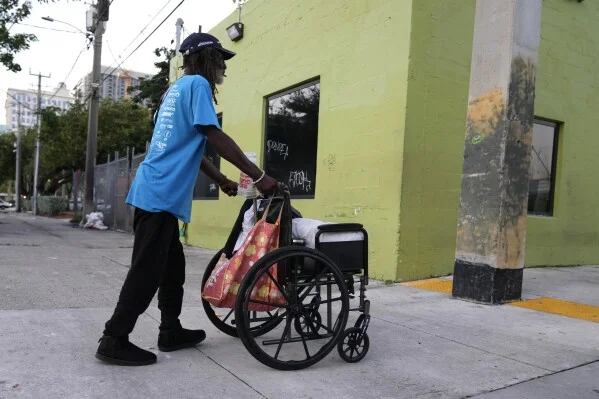
Florida’s Homeless Ban: A New Approach to Tackling Poverty
In a controversial move, the city of Miami Beach in Florida has implemented a ban on sleeping or camping in public spaces, directly impacting the homeless population. This policy, effective from October 2021, has sparked a nationwide debate on how best to address the issue of homelessness and poverty.
The ban, which carries a penalty of up to 60 days in jail or a $500 fine, has been met with criticism from advocates for the homeless who argue that it criminalizes poverty rather than offering solutions. Critics point out that without sufficient shelter options, the ban merely shifts the problem rather than solving it. The city, however, maintains that the measure is necessary to maintain public order and safety.
Despite the controversy, the ban has not deterred other cities from considering similar measures. Across the United States, the approach to homelessness varies widely, with some cities opting for more compassionate solutions like providing housing and support services, while others lean towards stricter enforcement of public space regulations.
The situation in Miami Beach has drawn attention to the broader issue of homelessness in America, where an estimated 580,000 people are homeless on any given night. This figure highlights the urgency of finding effective and humane solutions to a problem that affects cities nationwide.
The debate over Florida's homeless ban continues, reflecting the larger struggle to balance public interest with the rights and needs of the most vulnerable populations.